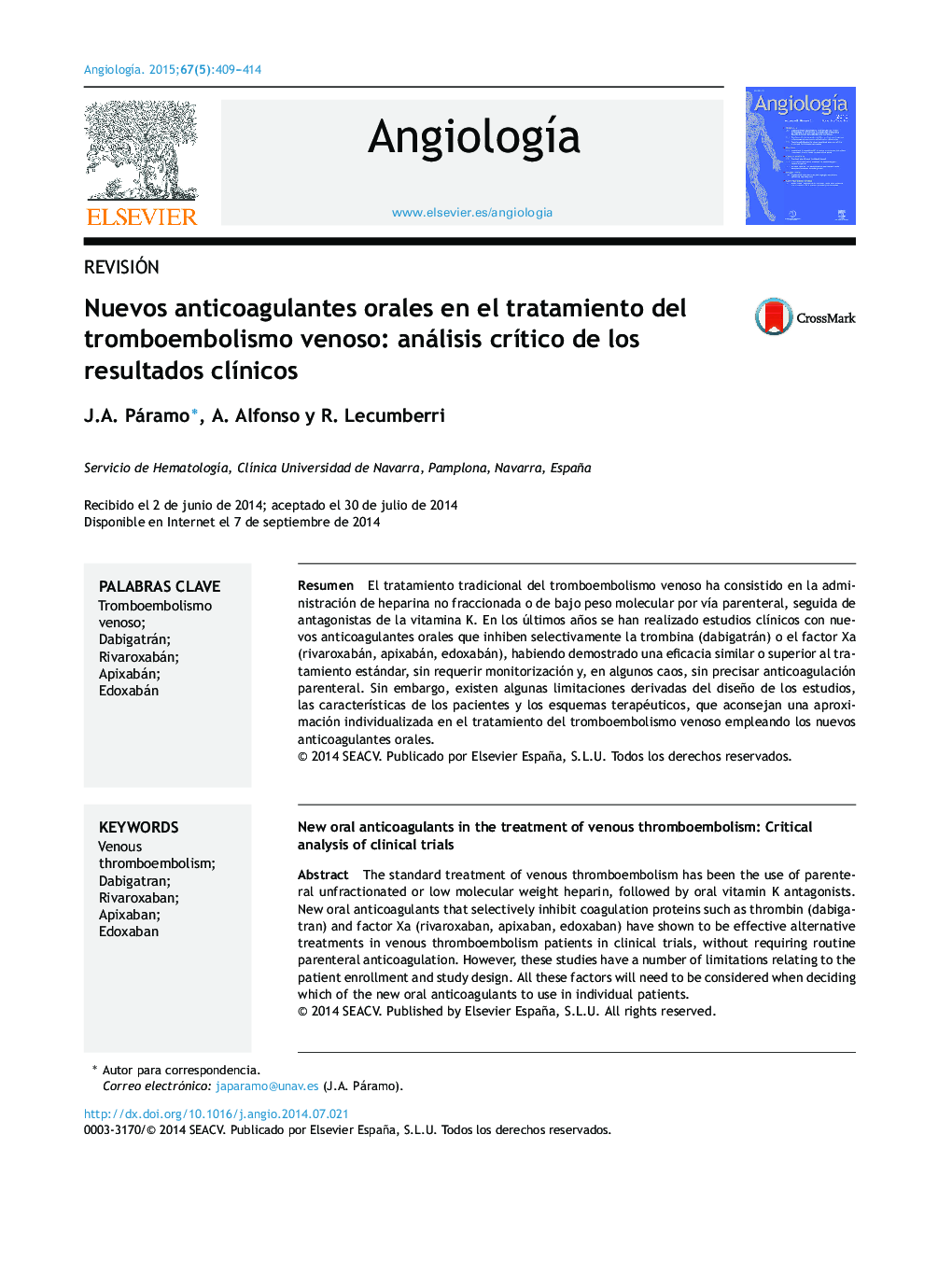| Article ID | Journal | Published Year | Pages | File Type |
|---|---|---|---|---|
| 2867565 | Angiología | 2015 | 6 Pages |
ResumenEl tratamiento tradicional del tromboembolismo venoso ha consistido en la administración de heparina no fraccionada o de bajo peso molecular por vía parenteral, seguida de antagonistas de la vitamina K. En los últimos años se han realizado estudios clínicos con nuevos anticoagulantes orales que inhiben selectivamente la trombina (dabigatrán) o el factor Xa (rivaroxabán, apixabán, edoxabán), habiendo demostrado una eficacia similar o superior al tratamiento estándar, sin requerir monitorización y, en algunos caos, sin precisar anticoagulación parenteral. Sin embargo, existen algunas limitaciones derivadas del diseño de los estudios, las características de los pacientes y los esquemas terapéuticos, que aconsejan una aproximación individualizada en el tratamiento del tromboembolismo venoso empleando los nuevos anticoagulantes orales.
The standard treatment of venous thromboembolism has been the use of parenteral unfractionated or low molecular weight heparin, followed by oral vitamin K antagonists. New oral anticoagulants that selectively inhibit coagulation proteins such as thrombin (dabigatran) and factor Xa (rivaroxaban, apixaban, edoxaban) have shown to be effective alternative treatments in venous thromboembolism patients in clinical trials, without requiring routine parenteral anticoagulation. However, these studies have a number of limitations relating to the patient enrollment and study design. All these factors will need to be considered when deciding which of the new oral anticoagulants to use in individual patients.
